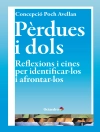Widely regarded as the standard reference in the field, this comprehensive handbook presents state-of-the-art knowledge about the nature and classification of learning disabilities (LD), their causes, and how individuals with these difficulties can be identified and helped to succeed. Best practices are described for supporting student performance in language arts, math, and other content areas. Contributors also identify general principles of effective instruction and review issues in service delivery within response-to-intervention (RTI) frameworks. The book critically examines the concepts and methods that guide LD research and highlights important directions for future investigation.
New to This Edition:
*Incorporates key advances in identifying and remediating LD, with particular attention to the role of RTI.
*Chapters on social cognitive, behavioral genetic, and neurobiological aspects.
*Chapters on adolescents and adults with LD.
*Chapters on spelling instruction, history instruction, and classroom technology applications.
*Chapter synthesizing 21st-century advances in LD research methods, plus chapters on advanced statistical models, single-case designs, and meta-analysis.
Tabela de Conteúdo
I. Foundations and Current Perspectives
1. Overview of Foundations, Causes, Instruction, and Methodology in the Field of Learning Disabilities, H. Lee Swanson, Karen R. Harris, & Steve Graham
2. A Brief History of the Field of Learning Disabilities, Daniel P. Hallahan, Paige C. Pullen, & Devery Ward
3. Classification and Definition of Learning Disabilities: A Hybrid Model, Jack M. Fletcher, Karla K. Stuebing, Robin D. Morris, & G. Reid Lyon
4. Learning Disabilities and the Law, Cynthia M. Herr & Barbara D. Bateman
5. Linguistically Diverse Students’ Reading Difficulties: Implications for Models of Learning Disabilities Identification and Effective Instruction, Nonie K. Lesaux & Julie Russ Harris
6. Adults with Learning Disabilities: Factors Contributing to Persistence, Noel Gregg
7. From FAPE to FEPE: Toward an Excellent Public Education for Children and Youth with Learning Disabilities, Deborah L. Speece, Kimberly Palombo, & Jamey Burho
8. The State of the Science in Learning Disabilities: Research Impact on the Field from 2001 to 2011, G. Reid Lyon & Beverly Weiser
II. Causes and Behavioral Manifestations
9. Attention-Deficit/Hyperactivity Disorder, Executive Function, and Reading Comprehension: Different but Related, Martha B. Denckla, Laura A. Barquero, Esther R. Lindström, Sabrina L. Benedict, Lindsay M. Wilson, & Laurie E. Cutting
10. Rapid Automatized Naming and Reading: A Review, George K. Georgiou & Rauno Parrila
11. Basic Cognitive Processes and Reading Disabilities, Linda S. Siegel & Silvia Mazabel
12. Memory Difficulties in Children and Adults with Learning Disabilities, H. Lee Swanson & Xinhua Zheng
13. Learning Disabilities in Mathematics: Recent Advances, David C. Geary
14. Language Processes: Characterization and Prevention of Language-Learning Disabilities, Mary Beth Schmitt, Laura M. Justice, & Jill M. Pentimonti
15. Social Cognition of Children and Adolescents with Learning Disabilities: Intrapersonal and Interpersonal Perspectives, Michal Al-Yagon & Malka Margalit
16. Behavioral Genetics, Learning Abilities, and Disabilities, Stephen A. Petrill
17. Diagnosing and Treating Specific Learning Disabilities in Reference to the Brain’s Working Memory System, Virginia W. Berninger & H. Lee Swanson
III. Domain-Specific Instruction/Intervention Research
18. Word Identification Difficulties in Children and Adolescents with Reading Disabilities: Intervention Research Findings, Maureen W. Lovett, Roderick W. Barron, & Jan C. Frijters
19. Developing a New Intervention to Teach Text Structure at the Elementary Level, Joanna P. Williams & Lisa S. Pao
20. Reading Comprehension for Adolescents with Significant Reading Problems, Sharon Vaughn, Elizabeth Swanson, & Michael Solis
21. Instructional Intervention for Students with Mathematics Learning Disabilities, Lynn S. Fuchs, Douglas Fuchs, Robin F. Schumacher, & Pamela M. Seethaler
22. The Writing of Students with Learning Disabilities, Meta-Analysis of SRSD Writing Intervention Studies, and Future Directions: Redux, Steve Graham, Karen R. Harris, & Debra Mc Keown
23. Classroom Spelling Interventions for Students with Learning Disabilities, T. F. Mc Laughlin, Kimberly P. Weber, & K. Mark Derby
24. Science and Social Studies Education for Students with Learning Disabilities, Thomas E. Scruggs & Margo A. Mastropieri
25. History Instruction for Students with Learning Disabilities, Cynthia M. Okolo & Ralph P. Ferretti
IV. General Instructional Models
26. Direct Instruction as Eo nomine and Contronym: Why the Right Words and the Details Matter, Edward J. Kame’enui, Hank Fien, & Jaan Korgesaar
27. Cooperative Learning for Students with Learning Disabilities: Advice and Caution Derived from the Evidence, Rollanda E. O’Connor & Joseph R. Jenkins
28. Data-Based Individualization as a Means of Providing Intensive Instruction to Students with Serious Learning Disorders, Douglas Fuchs, Kristen L. Mc Master, Lynn S. Fuchs, & Stephanie Al Otaiba
29. The Sociocultural Model as a Framework in Instructional Intervention Research, Carol Sue Englert & Troy Mariage
30. Technology Applications for Improving Literacy: A Review of Research, Charles A. Mac Arthur
V. Measurement and Methodology
31. Design for Learning Disabilities Experimental and Quasi-Experimental Research, Victor L. Willson & William H. Rupley
32. Single-Case Design Intervention Research: Applications in the Learning Disabilities Field, Thomas R. Kratochwill, Margaret R. Altschaefl, Brittany J. Bice-Urbach, & Jacqueline M. Kawa
33. Meta-Analysis of Research on Children with Learning Disabilities, H. Lee Swanson
34. Making a Hidden Disability Visible: What Has Been Learned from Neurobiological Studies of Dyslexia, Sally E. Shaywitz & Bennett A. Shaywitz
35. “Taking a Handful of World”: Qualitative Research in Learning Disabilities, Brooke Moore, Janette Klingner, & Beth Harry
Sobre o autor
H. Lee Swanson, Ph D, is Distinguished Professor of Educational Psychology/Special Education and holds an endowed chair at the University of California, Riverside. He is Editor-in-Chief of the Journal of Learning Disabilities and was the founding editor of Learning and Individual Differences. Widely published, Dr. Swanson has received research awards from the American Educational Research Association, the International Academy for Research in Learning Disabilities, and the Council for Learning Disabilities. His primary research interests are in the areas of intelligence, memory, mathematics, reading, and dynamic assessment as they apply to children with LD.
Karen R. Harris, Ed D, is the Mary Emily Warner Professor in the Mary Lou Fulton Teachers College at Arizona State University; she shares this professorship with Steve Graham. Dr. Harris has worked in the field of education for over 35 years as a teacher, teacher educator, and researcher. She is the former editor of the Journal of Educational Psychology and is an associate editor of the American Psychological Association’s open-access online journal Archives of Scientific Psychology. Her research focuses on theoretically based interventions for the development of academic and self-regulation abilities among students who are at risk for or have severe learning challenges, including LD and attention-deficit/hyperactivity disorder. Dr. Harris and Steve Graham are coeditors of the Guilford series What Works for Special-Needs Learners.
Steve Graham, Ed D, is the Warner Professor in the Division of Educational Leadership and Innovation at Mary Lou Fulton Teachers College, Arizona State University. He is also Research Professor in the Learning Science Institute at the Australian Catholic University in Brisbane. Dr. Graham is editor of the Journal of Educational Psychology. He has coedited several books, including Handbook of Writing Research, Second Edition; Handbook of Learning Disabilities, Second Edition; and Best Practices in Writing Instruction, Second Edition; and is the coauthor of three influential Carnegie Corporation reports: Writing Next, Writing to Read, and Informing Writing. Dr. Graham has received numerous awards, including the Career Research Award from the Council for Exceptional Children (CEC), the Kauffman–Hallahan Distinguished Researcher Award from the CEC Division of Research, the Samuel A. Kirk Award from the CEC Division of Learning Disabilities, the Distinguished Researcher Award from the special education interest group of the American Educational Research Association (AERA), and the Wiederholt Distinguished Lecturer Award from the Council of Learning Disabilities. He is a fellow of the AERA and the International Academy for Research in Learning Disabilities.












